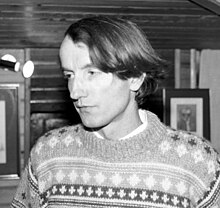
Michel Tournier was a French writer. He won awards such as the Grand Prix du roman de l'Académie française in 1967 for Friday, or, The Other Island and the Prix Goncourt for The Erl-King in 1970. His inspirations included traditional German culture, Catholicism and the philosophies of Gaston Bachelard. He resided in Choisel and was a member of the Académie Goncourt. His autobiography has been translated and published as The Wind Spirit. He was on occasion in contention for the Nobel Prize in Literature.

The Prix Théophraste-Renaudot or Prix Renaudot is a French literary award.
Louis Pauwels was a French journalist and writer.

Philippe Jaccottet was a Swiss Francophone poet and translator.
Claude Mauriac was a French author and journalist. He was born in Paris, the eldest son of the author François Mauriac.
The Prix Méditerranée is a French literary award. It was created in 1984 in Perpignan by the Mediterranean Centre of Literature (CML) in order to promote cultural interaction among the numerous countries surrounding the Mediterranean Sea. Two awards are handed out every year, the Prix Méditerranée itself and the Prix Méditerranée Étranger. The latter is given to a writer from the Mediterranean basin whose original work has been translated into French.

Laurence Ruel, known by her pen name Camille Laurens, is a French writer and winner of the 2000 Prix Femina for Dans ces bras-là. Laurens is a member of the Académie Goncourt.
Bernard Comment is a Swiss writer, translator, scriptwriter, and publisher of books.

The Grand prix des lectrices de Elle is a French literary prize awarded by readers of Elle magazine.
Raymond Jean was a prolific French writer. He published more than 40 books in many genres, and won the Prix Goncourt de la nouvelle in 1983 for his book Un fantasme de Bella B. His novella La lectrice was turned into a hit film by director Michel Deville, starring Miou-Miou. It has been translated in English by Adriana Hunter for publication by Peirene Press, under the title Reader for Hire.

Bison is the twenty-fourth novel of Patrick Grainville, published in Éditions du Seuil on January 2, 2014.
Christian Liger was a 20th-century French writer.
The prix Contrepoint is a French literary award established in 1971 by a group of young French novelists and journalists. Each year a French-speaking novelist is selected.

Bernard Chambaz is a French writer, historian and poet, winner of several French literary prizes.

Hédi Kaddour is a French poet and novelist.
The grand prix de littérature de la SGDL is a French literary prize created by the Société des gens de lettres in 1947 in order to reward an author for the whole of his work, and which is given during the spring session of the society.
Christine Jordis real name Marie-Christine Morel de Foucaucourt is a French writer, journalist and editor, a specialist in English literature.
The grand prix de la Critique littéraire was created in 1948 by Robert André. It is awarded each year by the French PEN club to a literary essay. Chaired by Joël Schmidt, its jury is now made up of Jean Blot, Jean-Luc Despax, Jean-Claude Lamy, Daniel Leuwers, Jean Orizet, Laurence Paton, Antoine Spire and Patrick Tudoret. Since its creation, it has rewarded many leading authors and intends to promote a literary criticism of quality and, quite simply, literature.
Jacques Bens was a French writer and poet.
François Bott was a French author who after a long career as a journalist and literary critic became a writer of novels, one of which, Une minute d’absence (2001), won the Académie Française's Prix de la Nouvelle. He continued as a literary critic, writing essays focused on other writers, especially Roger Vailland.








